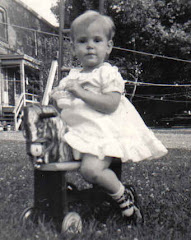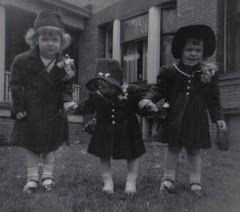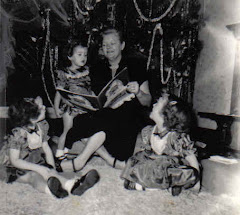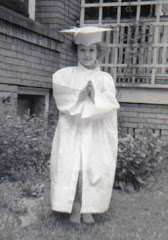Some of the early Roberts' families of Sevier County are found in early tax lists of Virginia, so it is possible that Isaac came from the same area as a young man. He was old enough to have fought in the Battle of Kings Mountain, as well as the Battle of Boyd's Creek. No documentation has been found to substantiate either claim at this time. I am going with the supposition that Isaac traveled with a wife, until future documentation proves otherwise.
My story of Isaac, as I imagine it was ....
Isaac traveled with kin and neighbors into the back country of what was then the western borders of Virginia and North Carolina. These migrations are found throughout the early history of our country, and I am amazed at how often our ancestors traveled until they found a spot to call home and put down roots. Isaac would have brought with him an axe, knife and a long rifle. If he was married at the time, his wife would have gathered her few worldly goods; pots, skillets, spinning wheel, dishes that she brought with her from across the pond (or mostly likely plates and spoons carved from wood) a milk cow if she had one, sheep (raised for clothing and food) and whatever else that was potable. They traveled by foot, pulling a cart with their belongings. If they were lucky enough to own a horse, they would take turns riding, but mostly they walked.

When Isaac and his wife first arrived in the Flat Creek area of what is now Sevier County, TN they probably lived in a cave carved out of a hill while they cleared the land for crops. Their temporary home would have consisted of just one room with a fireplace for cooking and heat, a bench and a table and chairs, a large chest would have held their clothing and linens. Later this cave could be used as a root cellar. There also would have been a fresh spring that they would build a small stone building around for storing eggs, milk and whatever else would have been perishable (a spring house).
When they cleared their land, they would have set aside the logs for building their cabin, but getting a crop in the ground took priority. They would harvest in the fall, before the frost set in. Isaac, along with the other men of their small community, would hunt birds and animals for food for the family table. Meat would be stored in large barrels filled with salt for the winter months ahead.
....."men work from dawn to dusk and a woman's work is never done"
Isaac's wife's days would have been spent doing chores. She would rise early, to feed the chickens and gather eggs, milk the cow, water the horse and mule, pick berries from the forest, gather produce from their gardens, peas, onions, turnips, carrots and whatever else they had planted. Then she would cook breakfast, probably a simple meal of biscuits and porridge. There would also be a midday and evening meal to cook. All of which meant gathering wood for the fireplace because few early female pioneers had stoves. The floor was made from packed dirt that had to be swept daily. The babies and children had to be cared for and when ill, treated with herbal remedies. Many women died in childbirth and men would remarry quickly to have someone to raise their children. Some children would be indentured out to learn a trade, some as young as six years old. Bathing meant boiling large amounts of water, so they probably just washed from a pan of hot water each day. A large kettle over a fire would be set up for washing clothes, an iron heated over the fire for ironing. Wool would be spun and then weaved for clothing, candles and soap made from tallow. The tallow would be made by rendering fat down in a large kettle over an open fire. There were no schools, the only book in the home was probably a bible. Verses would be read each evening, and mother's who could read and write would teach their children "the three r's" using slate and chalk. The bible was also where they recorded the births, deaths and marriages of family members.
Isaac and his wife would have been totally self-reliant, and met their needs without help from anyone else. Whatever they did not grow or raise was bartered for.
Then there was the constant threat from the Native Americans, because our ancestors were intruders who had, in some cases, settled on Indian lands. Forts would be built where the settlers could gather for safety from Indian attacks, but many times a simple hunt for herbs, mushrooms or even a hunting trip meant danger was always present.
......and into this harsh environment my great-great grandfather, Elisha Roberts, was born.
To be continued ...








No comments:
Post a Comment